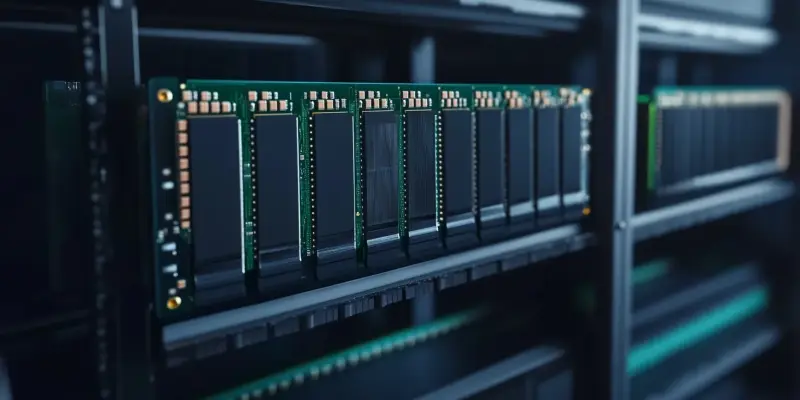Solidigm, a subsidiary of SK hynix, has reportedly halted the production of all consumer SSD products as it chooses to focus entirely on the data center segment. Acquired from Intel by SK hynix in 2021 for a staggering $9 billion, Solidigm made use of Intel’s advanced SSD technology. However, in a significant move, the company has removed its P44 Pro and P41 Plus SSDs from its official website, and the consumer SSD sub-category has been discontinued altogether. According to Solidigm, these products are set to reach their end-of-life by October 2024, reflecting a strategic retreat from the consumer SSD market.
Solidigm’s P-series SSDs were once competitive and respected in the market, offering reliability and performance that rivaled leading brands. Nonetheless, the consumer SSD sector has encountered multiple challenges, prompting Solidigm to shift its concentration to the data center domain. Earlier this year, Solidigm introduced an impressive 122 TB data center storage solution known for its high efficiency, marking a clear intent to lead in this space. This pivot indicates that the consumer SSD market is faltering, with only a few major players managing to sustain their position. Solidigm’s withdrawal from this market highlights the tough conditions prevailing in the consumer SSD sector and underscores the firm’s decision to channel its resources toward data center solutions for sustainable growth.
Challenges in the Consumer SSD Market
The consumer SSD market has experienced a host of difficulties over the past few years, including price volatility and increased competition. These challenges have made it increasingly tough for companies to maintain profitability and market share. Solidigm’s decision to shift away from consumer SSDs further signifies the struggles faced by businesses in this space. Many smaller companies have already exited the market, unable to compete with established giants like Samsung and Western Digital.
Solidigm’s strategic decision is also a testament to the growing importance of the data center market. As data continues to proliferate at an exponential rate, the demand for robust and high-capacity storage solutions has surged. Data centers, therefore, represent a promising avenue for growth, with higher margins and more stable demand compared to consumer electronics. Solidigm’s latest 122 TB data center solution is a prime example of where the company’s future lies. It emphasizes efficiency and capacity, catering to the unique needs of large-scale data operations.
Future Prospects for Solidigm
Solidigm’s strategic pivot to the data center sector suggests its future lies in addressing the growing need for advanced storage solutions in this field. While its P-series SSDs had once garnered respect for reliability and performance, the consumer SSD segment’s challenges have led to this significant shift. Solidigm’s introduction of a 122 TB data center storage solution earlier this year underscores its intent to lead in this area. With this strategic move, Solidigm aims to invest in data center solutions, signaling sustainable growth and underlining the company’s adaptability in navigating market changes.

